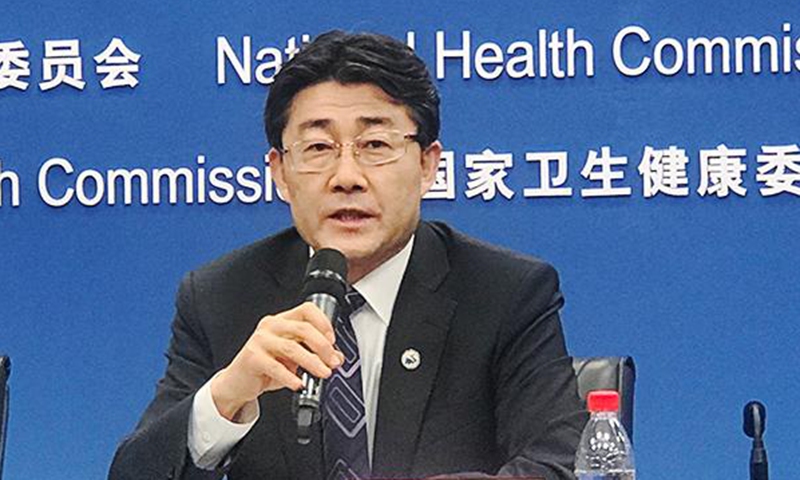
Gao Fu, director of the Chinese Center for Disease Control and Prevention Photo: China.org.cn
The transmissibility and pathogenicity of the novel coronavirus has been strengthening, leading to challenges regarding the research and development of vaccines, Gao Fu, director of the Chinese Center for Disease Control and Prevention (China's CDC), said Saturday at the National Vaccines and Health Conference.
At the conference, scheduled on Saturday and Sunday in Chengdu, Southwest China's Sichuan Province, Gao called for accelerating COVID-19 vaccine development and optimizing vaccine review procedures to facilitate the implementation of a national vaccination program so that herd immunity can be built.
Gao suggests adjusting vaccination intervals, the dosage of each shot or the number of shots each person should take to increase COVID-19 vaccines' efficacy.
The latest advised interval between two injections, announced by China's CDC on March 28, is three to eight weeks, longer than the 14-day interval followed previously, raising speculation on whether the extended interval could impact the efficacy of the vaccines.
It is reasonable to make such an adjustment, as the 14-day interval, which was designed under an emergency use purpose, is too short, and the longer interval could produce better efficacy, a Beijing-based expert on immunology told the Global Times.
In general, it is better to take two shots with an interval of 4-8 weeks. If the interval is too short, the antibodies produced after the first shot would be neutralized by the antigen, reducing vaccine efficacy, the expert explained.
A research team from Hong Kong University has planned to recruit volunteers to accept mixed vaccine shots produced by different manufactures.
Volunteers would accept Pfizer's mRNA vaccine as the first shot and Sinovac Biotech's inactivated vaccines as the second shot. This method could probably lead to a better protection efficacy than accepting one kind of vaccine, according to Hong Kong media.




